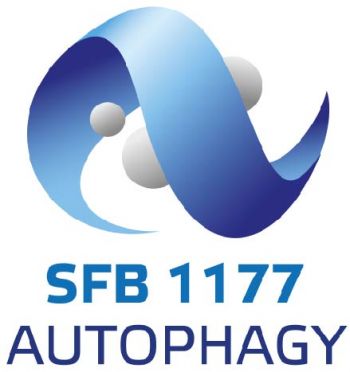24 Nov 2023 - Successful prolongation of CRC 1177
As announced today by the German Research Foundation (DFG), the Collaborative Research Centre (CRC) on selective autophagy has successfully made it into the 3rd funding period and will be funded for another four years. The CRC 1177 was established in 2016 under the lead of IBC2 Director Ivan Đikić. It is the first consortium in Germany systematically addressing several challenging questions in selective autophagy. In the previous two funding periods, research focused on mechanistic, molecular and functional aspects of selective autophagy networks and led to detailed insights into the molecular basis of autophagy, its regulation and functions of individual selective autophagy pathways. In addition, CRC 1177 became an internationally recognized technology hub for autophagy research in Germany. Together with an exceptional culture that supports independence and mentoring of young scientists, CRC 1177 attracted the most promising talents to initiate their careers in this field in Frankfurt
Major areas of interest in the 3rd funding period include lipid and membrane remodeling, dynamics of organelle turnover and the role of autophagy in neurodegeneration, immunity and inflammation. To address these topics, in each project, multidisciplinary teams of two to three leaders will work together in a highly integrative manner. The success of this consortium depends to a large extent on cutting-edge technologies: Platforms for quantitative proteomics, integrated systems biology analyses, chemical and genetic screening, imaging and phenotypic analyses were created in the previous funding periods and will continue to form an important pillar in the 3rd funding period, adapted to the changing needs of the consortium.
To broaden the expertise and integrate new researchers from the field of autophagy, the team was enlarged with colleagues from Frankfurt and several other German cities. Besides Goethe University, the Universities of Mainz, Tübingen, Freiburg, Munich and Heidelberg, the Max Planck Institute of Biophysics and the Max Delbrück Center for Molecular Medicine are involved in this 3rd funding period.

